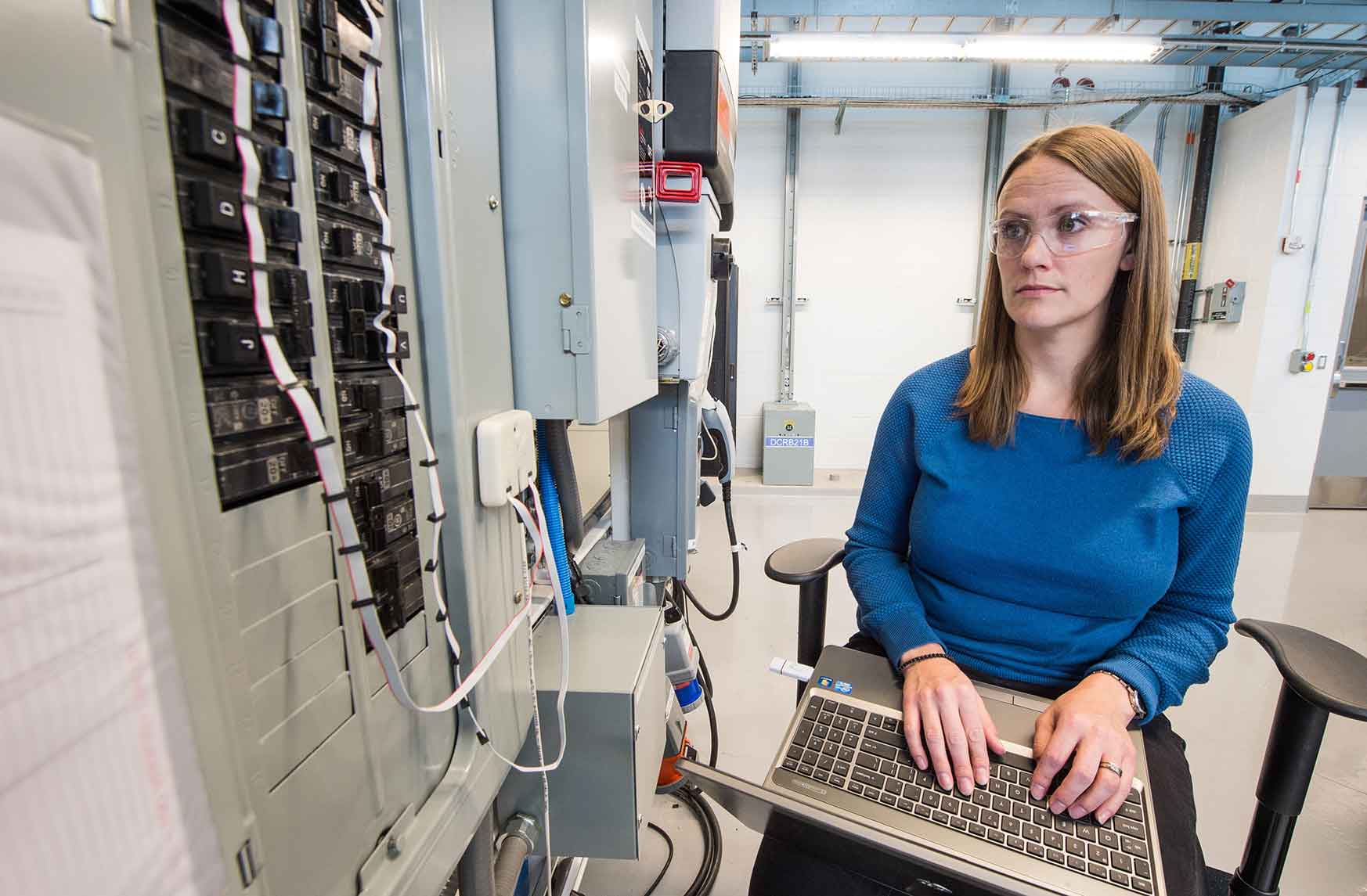Explore our collection of new stories for this topic.
Search or filter for a specific story using the options below.
October 2017
New REopt Lite Tool Allows Building Owners to Optimize PV and Battery System Sizes
The REopt Lite web tool helps building owners evaluate the economics of grid-connected solar photovoltaics (PV) and battery storage at commercial sites.
July 2017
News Release: NREL Names Roderick Jackson as Laboratory Program Manager for Buildings Research
Roderick Jackson is the new laboratory program manager for buildings-related research at the Energy Department's (DOE’s) National Renewable Energy Laboratory (NREL).
NREL, NYSERDA, and Con Edison Partner on Home Energy Management Systems
Twenty-four homes in New York City will be at the forefront of NREL home energy management systems (HEMS) research. The goal is to identify strategies for broad market adoption of smart home technologies that can bring comfort, convenience, and energy savings to residents across New York and the country.
News Release: NREL Announces Partnership with Panasonic and Xcel Energy
The U.S. Department of Energy's (DOE) National Renewable Energy Laboratory (NREL) is partnering with Panasonic Corporation and Xcel Energy to simulate and optimize the energy load profile of Peña Station NEXT, a planned 382-acre mixed-use development in Denver, Colo.
May 2017
NREL and iUnit Open the Door to Grid-Integrated, Multifamily Construction
On May 4, 2017, nearly 30 industry partners visited NREL's Energy Systems Integration Facility to see a modular studio prototype apartment created by Denver developer, iUnit.
March 2017
Sensor Company Acquires Innovation Incubator Awardee, Launches Next-Generation "Connected" Building Technology
A sensor company has acquired the first beta-ready technology from the Wells Fargo Innovation Incubator, which is co-administered by NREL.
January 2017
News Release: NREL Announces Third Round of Start-Ups to Participate in the Wells Fargo Innovation Incubator (IN2) Program
The Energy Department's National Renewable Energy Laboratory (NREL) will help an additional 10 companies advance their technologies under the third round of the Wells Fargo Innovation Incubator (IN2) program, a five-year, $10 million program designed to facilitate early-stage technologies that provide scalable solutions to reduce the energy impact of commercial buildings.
October 2016
News Release: Six Common City-Level Energy Policies Could Reduce Nationwide Carbon Emissions by up to 480 Million Metric Tons Annually
The Energy Department’s (DOE) National Renewable Energy Laboratory recently examined the carbon abatement potential of city actions in six policy areas as part of the DOE’s Cities Leading through Energy Analysis and Planning (Cities-LEAP) project. The analysis uses new data on energy use in more than 23,400 U.S. cities and estimates the aggregate impact of city actions related to: building energy codes, public transit, building energy incentives, rooftop photovoltaics, smart growth, and municipal actions. The results indicate that by 2035, these six common city-level policy approaches could reduce nationwide carbon emissions by 210–480 million metric tons of carbon emissions per year. That is a 7–19 percent reduction in carbon emissions for the average city relative to current city-level emissions.
August 2016
News Release: Johney Green to Lead NREL Mechanical and Thermal Systems Engineering Research
The Energy Department’s National Renewable Energy Laboratory (NREL) has named Dr. Johney Green Jr. as Associate Laboratory Director for Mechanical and Thermal Systems Engineering. He will oversee the laboratory’s transportation, buildings, wind, water and geothermal research programs.
Share
Last Updated May 5, 2025

